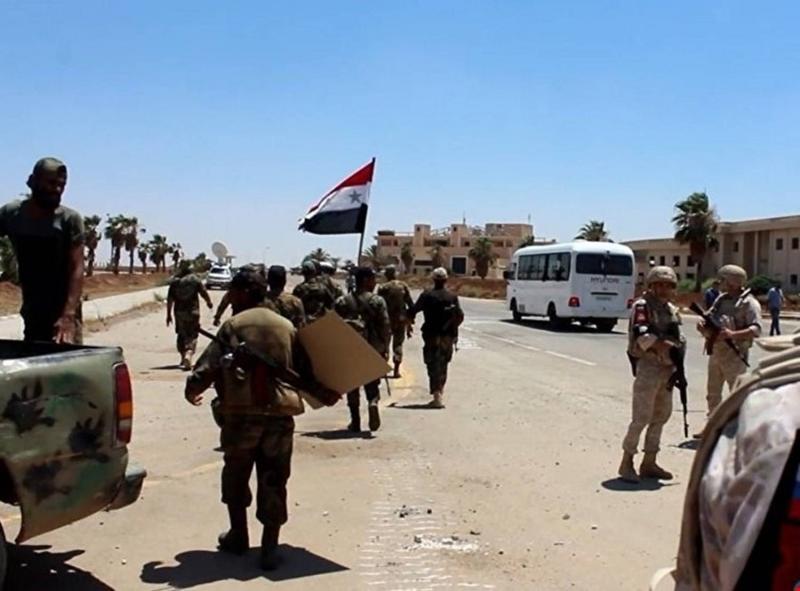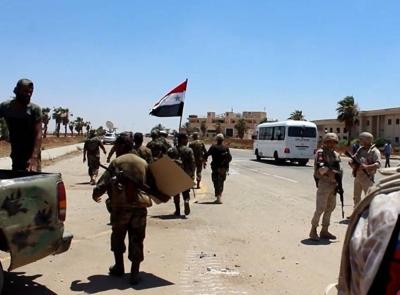Residents, the Syrian army, and former opposition members reported that government forces entered Daraa Al-Balad, the birthplace of the uprising against President Bashar al-Assad's rule, for the first time since losing control of it a decade ago. Army units established at least nine checkpoints throughout the city under an agreement brokered by Russia between the army and armed opposition, which was ultimately reached last week. The government stated that state authority has finally been established to restore order and security in an area where the first peaceful protests against the Assad family rule erupted in 2011, before security forces took harsh measures against participants, leading to civil unrest escalating into a civil war.
Iran-aligned army units had bombarded the region for nearly two months in several failed attempts to control it, imposing a blockade on neighborhoods inhabited by more than 50,000 residents, preventing food and medicine from reaching them. They also opened a corridor for many civilians to escape. In 2018, with support from Russian air power and Iran-backed militias, the Syrian army regained control of southern Syria along the border with Jordan and the Israeli-occupied Golan Heights to the west. Under a deal overseen by Russia at that time, Western-backed opposition fighters surrendered their heavy weapons but were allowed to continue administering Daraa Al-Balad. Moscow also provided guarantees to Israel and the United States in 2018 that it would prevent Iran-aligned militias from expanding their influence in the sensitive border area.
Following the surrender of Daraa Governorate, many residents preferred to stay rather than head to the remaining opposition-controlled areas in northern Syria, where tens of thousands displaced from regained government territories gathered. Witnesses reported that dozens of Russian military police took positions in the war-torn area as former opposition fighters and civilians surrendered light weapons at army-established centers, as stipulated by the peace agreement. Local officials hope that Russia will rein in the local Iran-aligned militias, which they say act without fear of punishment and currently dominate the border area.
Many residents are increasingly concerned about the secret police of the Assad regime, which has once again tightened its grip and carried out a campaign of arrests, raising widespread fear. Daraa Al-Balad and other towns in southern Syria have organized sporadic protests against Assad's rule since the government regained control of the governorate, a rare sight in government-held areas. Local leader Jasem Mohamid stated, "We feel helpless and frustrated. We are used to being free; we will return to live humiliated." Since 2015, Assad's forces have regained about 70 percent of the country, and large-scale fighting has diminished in the multi-faceted conflict that has killed hundreds of thousands and displaced millions, drawing in neighboring countries and global powers and causing the largest displacement crisis since World War II.




